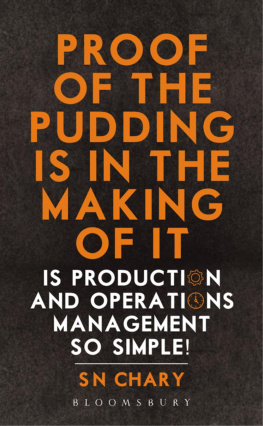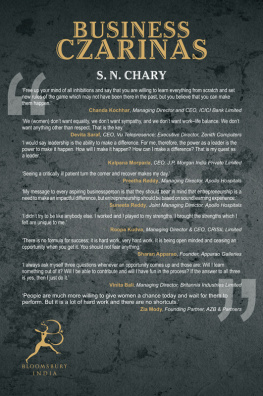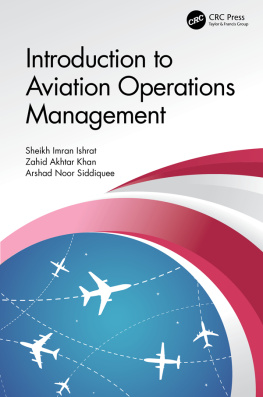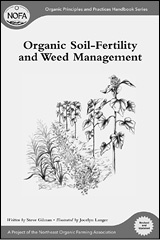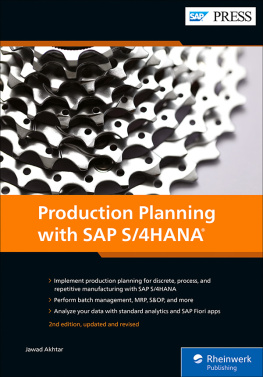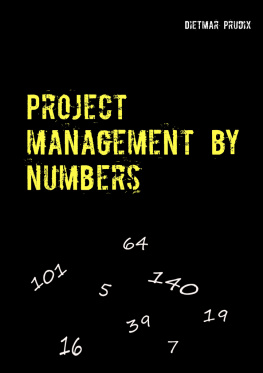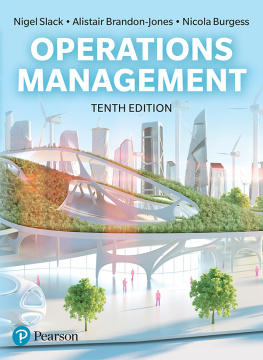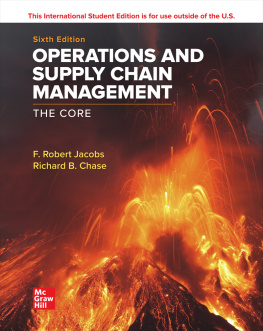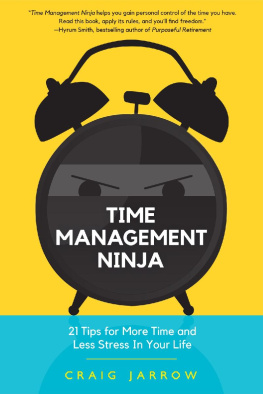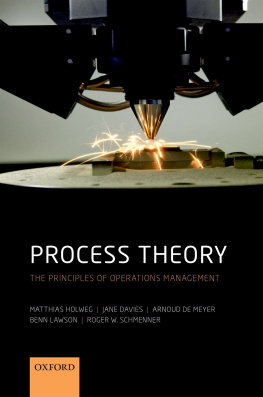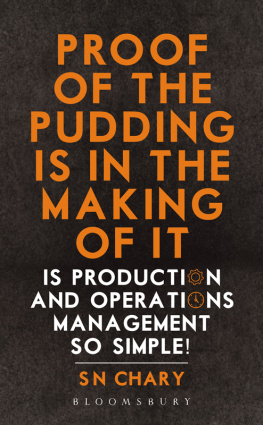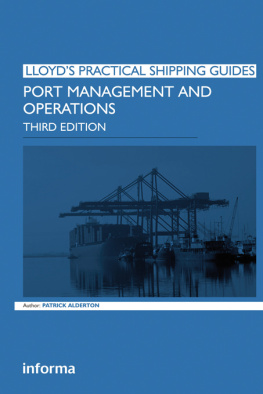Table of Contents

PROOF OF THE PUDDING
IS IN THE MAKING OF IT
Is
Production and Operations Management
So
Simple!
PROOF OF THE PUDDING
IS IN THE MAKING OF IT
Is
Production and Operations Management
So
Simple!
S.N. CHARY
First published in India 2017
2017 by S.N. Chary
All rights reserved. No part of this publication may be reproduced or transmitted in any form or by any means, electronic or mechanical, including photocopying, recording, or any information storage or retrieval system, without prior permission in writing from the publishers.
No responsibility for loss caused to any individual or organization acting on or refraining from action as a result of the material in this publication can be accepted by Bloomsbury or the author.
The content of this book is the sole expression and opinion of its author, and not of the publisher. The publisher in no manner is liable for any opinion or views expressed by the author. While best efforts have been made in preparing this book, the publisher makes no representations or warranties of any kind and assumes no liabilities of any kind with respect to the accuracy or completeness of the content and specifically disclaims any implied warranties of merchantability or fitness of use for a particular purpose.
The publisher believes that the content of this book does not violate any existing copyright/intellectual property of others in any manner whatsoever. However, in case any source has not been duly attributed, the publisher may be notified in writing for necessary action.
BLOOMSBURY and the Diana logo are trademarks of Bloomsbury Publishing Plc
ISBN 978 93 86643 03 2
2 4 6 8 10 9 7 5 3 1
Bloomsbury Publishing India Pvt. Ltd
DDA Complex, LSC Building No.4
Second Floor, Pocket C 6 & 7, Vasant Kunj
New Delhi 110070
www.bloomsbury.com
Created by Manipal Digital Systems
To find out more about our authors and books visit
www.bloomsbury.com.
Here you will find extracts, author interviews, details of forthcoming
events and the option to sign up for our newsletters.
I would like to start with salutations to my Guru and dedicate this book to Him.
The intent behind this book is to spread the wisdom and message of Production and Operations Management (POM) to a wide readership students, busy executives from industry, and also people who imagine that they have nothing to do with management like doctors, artists and homemakers.
The book distils the POM wisdom and presents the same through common everyday examples. By the examples given in this book it is clear that POM is needed by everyone of us in all areas of life. It is an easy-to-read and fun-filled book by which a reader will get to know the gist of POM within an hour. One does not need a background in Business/Management in order to pick up this book and read.
After several decades in the management profession, I got the simplicity of POM and its applicability in various areas of life. I wanted to share this experience with a wider audience. And hence this book.
Happy reading.
Contents
Chapter 1 Proof Of The Pudding Is In
The Making Of It

Proof Of The Pudding Is In The
Making Of It

Production and operations management (POM) is one of the functions of overall management of an organization, like marketing management and human resource management. Somebody may get sales orders for a product or service, but it has to be made/arranged and physically delivered to the customer to the latters satisfaction; this is done by POM. The proof of the pudding is in eating it. The pudding is made and supplied by POM. Human resources management comes after that in order to take care of the makers, deliverers and promoters.
An athlete in a running race may know the target, the capabilities of other athletes, their previous performance history and so on; all that is of no avail until she runs and wins.
Her face may be full of determination and competition rage at the start of the competition; but, the real test comes when she runs with her feet flying from the ground and hands pushing back and forth to provide the surge to her body. She has to be flexible, nimble, quick, fast and vigilant of the other competitors; and she should not tire out. Her physio may be there to help her; but, that is after the race.
POM has always been there, even before the present day corporate world came into existence. When my great grandmother did her chores in order to deliver daily a great meal to all of us on time three times a day it was nothing short of any other POM.
When your great grandfather tilled the land, and took care of milk cattle, he was running an operation to keep his family well-fed and clothed. He had to not only take care of seeds and fodder but also, very importantly, mind the seasons, the timely tilling and preparing the land, timely sowing, and on time harvesting.
However, in the huge spectacle and sound of the modern industrial processing machines and the razzle-dazzle of mind-boggling and senses-satisfying services of the present-day world, we momentarily forget that the unassuming basic jobs remain the same. We just have to remove the clutter. Whether it is military operations or civilian, the simple basics are more or less similar. Timely strikes with surgical precision are as much important in military operations as in the competitive global market.


In general, the phrase Production and Operations Management conjures up images of materials, machines and men furiously working at or with them. We also think of the amount of money that is required to have these resources. Rarely does the thought of the other resource, time, flash in our mind.
However, a foremost principle in managing operations is that of minimizing time. As we said, this may sound inappropriate. Is time a physical resource? one may ask. Well; Time is money. The more time we spend, the more it costs us. For instance, our own time costs us. Time is not free.
Money in any form either as materials, machines, manpower or plain simple cash kept for a length of time costs more money.
Moreover, remember: Time and tide wait for no one. Time that is lost does not return. Time is a precious resource.
The MUST super-principle
MINIMISE:
Using
Storing and
Transporting time
Operations use resources material and men/women. All resources whether it is palpable material like a metal sheet, a non-palpable resource like broadband for the internet, mind power like that of an engineer or a doctor diagnosing a patient cost more when used over a longer time period. Minimize Using Time means minimize the total time taken to perform any operation. Thus, the dictum is to Reduce Operation Times.
Principle 1
Reduce Operation Times
Towards this goal:
Design parts or components of the operation so that each of the parts takes minimum possible time. Towards this:

